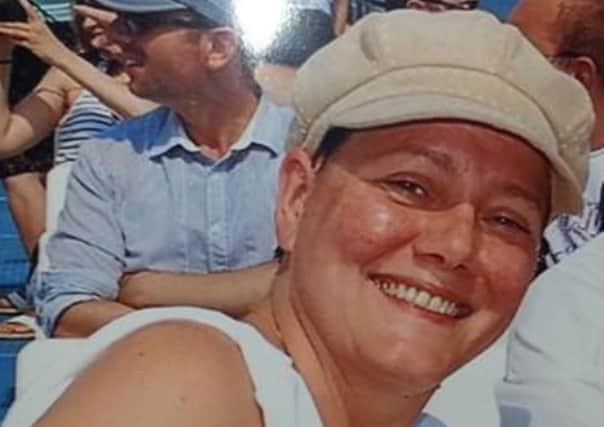UPDATED: Watchdog identifies police failings over woman’s death


Susan James, who was finance manager at the Chiltern MS Centre in Halton, was discovered by police at her home in Dixon Close, Aylesbury, after officers initially dispatched to her home were diverted to another urgent call.
In his report, lead IPCC investigator Dean Brown said staffing of the control room and training for operators were inadequate.
Advertisement
Hide AdAdvertisement
Hide AdHowever he said it was unlikely that Mrs James’ could have been saved even if police had responded straight away and ruled that the staff involved had no misconduct case to answer.
The 999 call from Mrs James’ phone came at midnight on September 13, 2014. It went through to a BT 999 operator working in Newport. There was no speech but what sounded like a female making ‘strange noises’ could be heard.
By 12.04am the BT operator spoke to a call taker who was working at Thames Valley’s police enquiry centre in Kidlington.
She only listened to the first 30 seconds of the call, which lasted two minutes and 46 seconds in total.
Advertisement
Hide AdAdvertisement
Hide AdShe commented to the BT operator: “Yeah, sounded like she’s possibly screaming or something doesn’t it?”
The call taker graded the incident as ‘urgent’ and not the highest grade of ‘immediate’. Her decision was ‘influenced’ by seeing there was no history of police contact with Mrs James.
The incident was taken up by a radio operator at the control room in Milton Keynes, but it was not until 12.20am that an available unit was found to attend. At 12.29am officers heading to Dixon Close were redeployed to a ‘sudden death incident’ elsewhere which had received an ‘immediate’ grading.
By 12.34am, the incident had been with police for 30 minutes, which should have triggered an automatic alert to the control room sergeant to find a police unit to attend. However, as a unit had been dispatched, the computer system did not recognise that officers still needed to attend. Under these circumstances the process was for the radio operator to manually escalate the incident to the sergeant, which he failed to do.
Advertisement
Hide AdAdvertisement
Hide AdPolice made several unanswered calls to Mrs James’ phone during the night but it was not until 5.23am that officers were eventually assigned. They discovered her body at 5.51am.
Mr Brown said that between midnight and 4am, staffing levels at Milton Keynes were ‘well below the estimated required level’. The control room staff member working on the Aylesbury radio channel was, for the most part, on shift on their own, whereas ‘ideally two members of control room staff are supposed to work together, at all times’.
He said the radio operator’s failure to escalate the incident to a sergeant was an ‘understandable mistake to make as the guidance is unclear’ and ‘a failing of training’.
Mr Brown found that another radio operator at Milton Keynes who took on the incident later in the morning had similarly failed to escalate the call to a sergeant due to poor training. However he added she was wrong to assume the police unit which originally headed for Mrs James would automatically ‘go back when they could’. The report said: “She should have contacted the unit in question to verify this. That she did not do so may be considered poor performance or indicate a learning need.”
Advertisement
Hide AdAdvertisement
Hide AdHe said the call taker in Kidlington was restricted in her decision making ‘by the fact only the first 30 seconds of the call was played back’, but her grading of the call as ‘urgent’ was a sound one.
Mr Brown recommended that staff training be improved and playback of 999 calls should be longer than 30 seconds.
Chief Insp Jim Templer, deputy head of Thames Valley Police’s control room and enquiries department, said: “We welcome the findings of the IPCC review of this case and the outcome that no members of staff have any case to answer in relation to misconduct or gross misconduct.
“We have given a commitment to the IPCC that all of our control room staff will be briefed on the organisational learning which has been identified.
Advertisement
Hide AdAdvertisement
Hide Ad“The report stated that it was an understandable decision for the call to be graded as ‘urgent’ and that the grading was consistent with TVP’s grading policy. “We are currently in the process of providing extra training to call takers, control room operators and supervisors on managing risk and clearer guidance has been produced.
“We have already taken on board the issues raised in the report in relation to staffing levels last year and have recruited further members of staff to fill these roles.
“We are also looking at introducing improved IT to help to resolve some of the challenges faced by our staff at the time of the incident.
“This incident had a tragic outcome and our thoughts remain with the family of Susan James.”